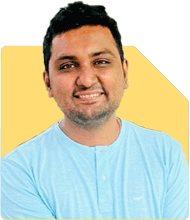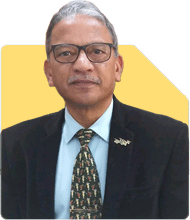Abhishek Shah | Answer |Ask -Follow
HR Expert - Answered on Jul 24, 2023

I've graduated in economics and would like to study majorly in macroeconomics and even find jobs in it. Could you guide me on the career options for this
Congratulations on graduating in economics and showing a keen interest in macroeconomics. Macroeconomic analysis is a crucial field that focuses on studying the overall performance and behavior of an economy, including factors like growth, inflation, unemployment, and monetary policy. It has significant applications in various sectors, and there are several career options you can explore:
Economist: As an economist, you can work in both the public and private sectors. In the public sector, you might find opportunities in government agencies, central banks, or international organizations like the International Monetary Fund (IMF) or the World Bank. In the private sector, economists are often hired by financial institutions, consulting firms, or research organizations to provide economic insights and forecasts.
Research Analyst: Many think tanks, economic research institutes, and academic institutions employ research analysts to conduct studies and analyze economic data. Your role would involve understanding macroeconomic trends, writing reports, and providing policy recommendations.
Financial Analyst: In the finance industry, macroeconomics plays a significant role in investment decisions. Financial analysts assess economic indicators and trends to guide investment strategies for clients or their companies.
Policy Advisor: Governments and international organizations often seek macroeconomic experts to advise on economic policies. As a policy advisor, you would be involved in formulating and implementing strategies to address economic challenges and promote growth.
Academic Researcher/Professor: If you have a passion for academia, you could pursue a Ph.D. in economics and become an academic researcher or professor. This path allows you to contribute to the field's knowledge by conducting original research and teaching students.
Market Research Analyst: Some companies employ macroeconomists as market research analysts. Your role would involve analyzing economic trends to help the company understand market conditions and make informed business decisions.
Data Analyst/Quantitative Analyst: With your economics background, you could also transition into roles that involve data analysis and quantitative modeling. Many industries, including finance, technology, and healthcare, value professionals who can analyze and interpret data to inform decision-making.
To maximize your chances of landing a job in macroeconomics, consider building a strong network in the field, staying up-to-date with current economic developments, and honing your analytical and quantitative skills. Additionally, publishing research papers or articles in reputable economic journals can boost your credibility and visibility as an expert in macroeconomics.
Remember that the job market may vary depending on your location and the demand for economists in your country or region. However, with the right skills and determination, there are plenty of opportunities to make a meaningful impact in the field of macroeconomics. Good luck with your career endeavors!
Regards,
Abhishek Shah
You may like to see similar questions and answers below
Nitin Sathe | Answer |Ask -Follow
HR, Recruitment Expert - Answered on Jan 06, 2023
Nayagam P P |10854 Answers |Ask -Follow
Career Counsellor - Answered on Sep 27, 2024
Sushil Sukhwani | Answer |Ask -Follow
Study Abroad Expert - Answered on Aug 16, 2024
Radheshyam Zanwar |6744 Answers |Ask -Follow
MHT-CET, IIT-JEE, NEET-UG Expert - Answered on May 27, 2025
Nayagam P P |10854 Answers |Ask -Follow
Career Counsellor - Answered on Dec 14, 2025
Radheshyam Zanwar |6744 Answers |Ask -Follow
MHT-CET, IIT-JEE, NEET-UG Expert - Answered on Dec 14, 2025
Radheshyam Zanwar |6744 Answers |Ask -Follow
MHT-CET, IIT-JEE, NEET-UG Expert - Answered on Dec 14, 2025
Dr Dipankar Dutta |1840 Answers |Ask -Follow
Tech Careers and Skill Development Expert - Answered on Dec 14, 2025
Dr Dipankar Dutta |1840 Answers |Ask -Follow
Tech Careers and Skill Development Expert - Answered on Dec 13, 2025
Dr Dipankar Dutta |1840 Answers |Ask -Follow
Tech Careers and Skill Development Expert - Answered on Dec 13, 2025
Mayank Chandel |2575 Answers |Ask -Follow
IIT-JEE, NEET-UG, SAT, CLAT, CA, CS Exam Expert - Answered on Dec 13, 2025
Radheshyam Zanwar |6744 Answers |Ask -Follow
MHT-CET, IIT-JEE, NEET-UG Expert - Answered on Dec 13, 2025
Mayank Chandel |2575 Answers |Ask -Follow
IIT-JEE, NEET-UG, SAT, CLAT, CA, CS Exam Expert - Answered on Dec 13, 2025
Mayank Chandel |2575 Answers |Ask -Follow
IIT-JEE, NEET-UG, SAT, CLAT, CA, CS Exam Expert - Answered on Dec 13, 2025























